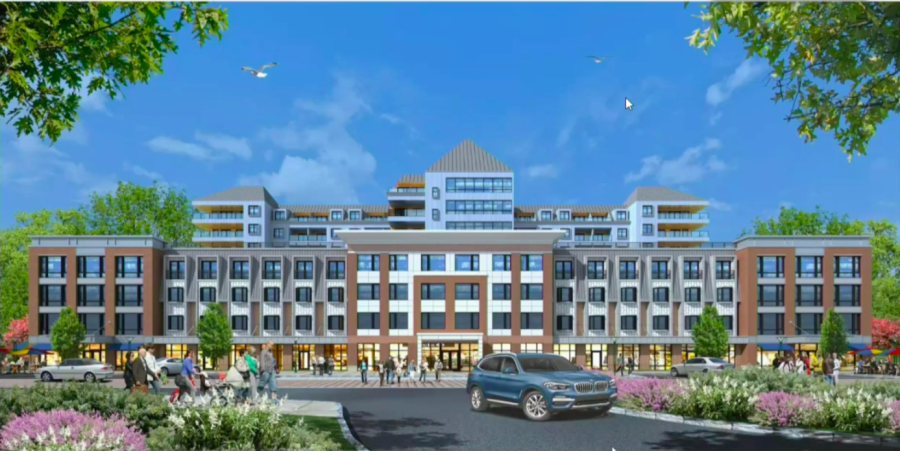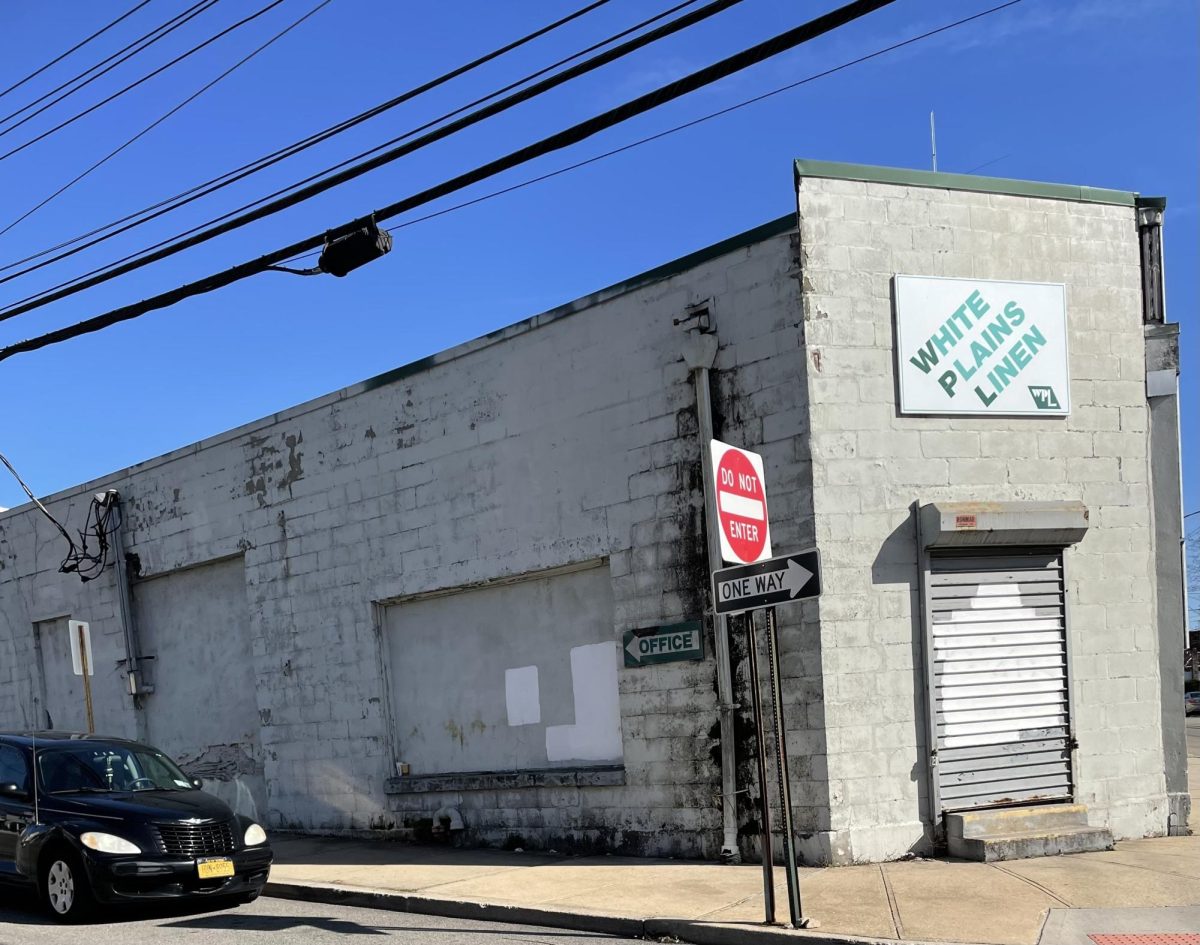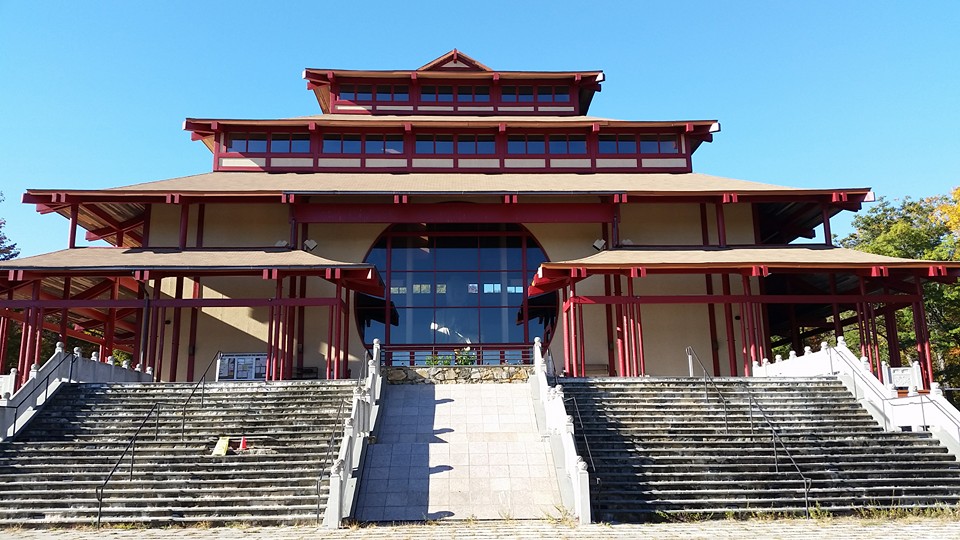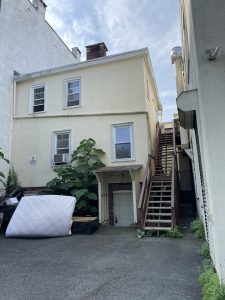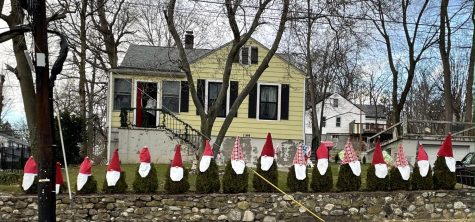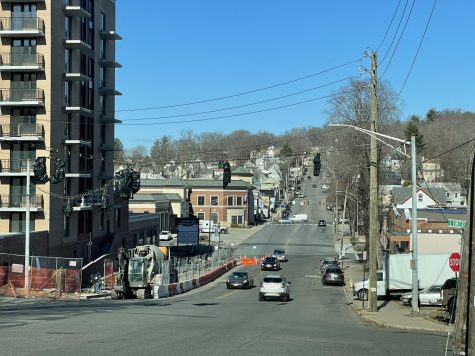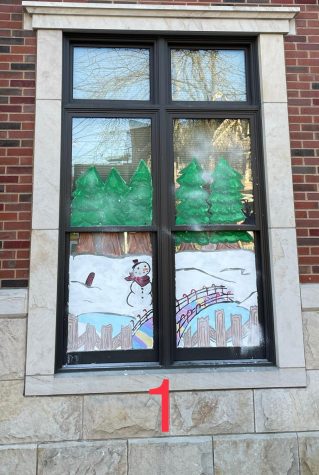Developer scales back Railroad Avenue project, creates two buildings
One rendering of the Ginsburg proposed developments for the Transit Oriented District on Railroad Avenue.
March 8, 2022
The three presentations Common Council members heard during Monday’s four-hour virtual work session illustrate the juncture Peekskill faces in the coming year with regard to population, housing and residents’ safety.
A county planner spelled out results from the 2020 census on the city’s population and housing units. A major developer pitched the scaled-down vision of his project on Railroad Avenue. And the city’s building inspector showed why there’s a need for a full-time fire inspector.
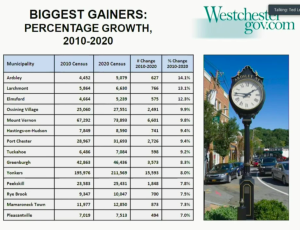
All three topics underscore the rapid growth the city is facing and the choices before elected officials on density, aesthetics and citizen well-being.
Tim Leimbach, an associate planner with Westchester County, explained through census data how Peekskill is now in the top tier of Westchester communities experiencing growth. The city grew by 1,848 people between 2010 and 2020, a 7.8 percent jump.
The highest uptick in numbers came from the Latino population which now represents 43.9 percent of the city’s population as compared to 36.9 percent in 2010. Peekskill’s African Americans represent 18.5 percent of the city’s population or 4,693 people. Peekskill boasts the second highest percentage of African Americans in the county after Mount Vernon’s 60 percent of the population.
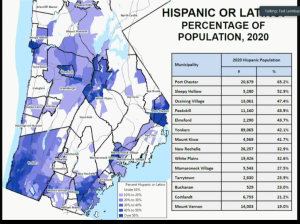
When it comes to numbers of housing units in Peekskill, census data in 2010 revealed 9,709 units available with 649 of those vacant. In 2020, 755 more units were available, bringing the total number to 10,464 with 651 vacant. Peekskill has approximately 1,000 units proposed or in the pipeline.
In the second presentation of the evening, developer Martin Ginsburg and his Ginsburg Development Companies (GDC) team shared renderings of their scaled-back plan for a housing development on Railroad Avenue, Requa Street and South Street. Ginsburg had originally proposed a nine-story mixed-use development last April, but after hearing from council members that the building was too big for the space, they went back to the drawing board.
The site has a 40-foot grade change from Railroad Avenue to South Street and they’ve designed two separate buildings to incorporate that grade change. The two buildings – a four-story on Railroad Avenue and a five and a half-story on South Street – would be connected by a core elevator.
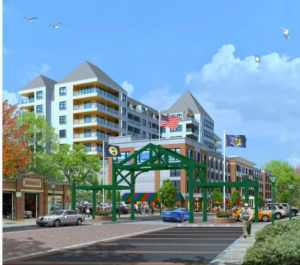
“This is an important site,” said Ginsburg, “and there is very little opportunity for a transit-oriented development in this particular location at the railroad that is also an entrance to the Riverfront Park and an essential connection to river traffic.”
Ginsburg has developed waterfront properties in Ossining and Yonkers as well as Peekskill’s Riverbend.
“The Hudson River is going to be a major tourist destination,” said Ginsburg. “Peekskill’s location at the riverbend, at the beginning of the Highlands, is a unique location to become a major tourist city. This location can’t be a minor project.”
The developer acknowledged that he was “pressing the economic limits” because it is a much smaller project than what he had envisioned. “It is still going to make a major impression,” he said.
Ginsburg said he was willing to compromise in density to make it work and to give the city the concept they wanted: a Main Street facade at the railroad.
The new proposal would have a total of 198 rental apartments. The smaller building on Railroad Avenue would house restaurants and retail on the ground floor. The taller building on South Street would feature 144 apartments.
GDC representative Leo Torres showed the Common Council three locations on Simpson Place that would be impacted by the height of the proposed building on South Street. Using images from Simpson Place house sale listings and Google maps Torres pointed to the loss of river views for some Simpson Place homeowners.
Council members questioned what type of energy the project would use for heating and cooling and whether it was going to be LEED certified. None of the Ginsburg buildings have LEED certification but they all employ an electric heat pump system that is individual for each unit.
The builder is proposing two roof gardens and solar panels on the higher building.
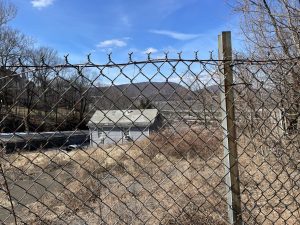
A large part of the discussion centered around a proposed “passive” park at the corner of South and Requa streets, maintained by his company. Because the city would relinquish a city-owned parking lot on Railroad Avenue for the project to move forward, Peekskill would get the development and an equivalent-sized park.

The lost parking spaces would be incorporated into the development’s underground parking facility.
“There’s a way to go,” on this project, said Planning Director Jean Friedman. Next steps include public hearings on zoning changes and special permits. She noted that a zoning amendment would be needed to allow a five-and-a-half story building in the Waterfront 2 zone, now zoned for five stories. And if Ginsberg is going to develop a hotel on the top floors, that would also need a zoning change.
The final presentation of the evening centered on Peekskill’s need for a formal fire safety program. Building inspector Nicholas Cecele explained how the city is not in compliance with a New York State law that requires municipalities to have a Fire Safety and Property Maintenance Program on the books.
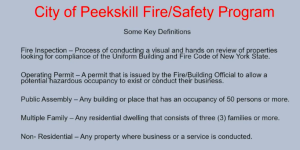
“It doesn’t mean that we’re not doing fire safety inspections, we are,” said Cecele noting that since it’s not a local law in Peekskill, the inspections aren’t mandated. The Fire Safety and Property Maintenance Program is a joint venture between the fire and building departments.
“This program is aimed to protect residents, business, visitors and first responders,” said Cecele. Peekskill has a wide variety of “public assembly buildings” such as City Hall, the Paramount, restaurants and houses of worship. According to New York State, all are required to undergo inspections every year. Multi-family buildings where more than three families are housed must have inspections every 18 months as do businesses. The program forces them to get done, said Cecele.
“If those don’t get done, there’s no pushback,” said Cecele. The goal for the new full-time fire inspector – whose salary has been included in the budget – would be to have inspections done every year.
“The goal is to limit the number of fires and the seriousness of the fires,” said Cecele, adding that interviews for the position will begin next week.

Reporting on government meetings is the backbone of community journalism. Become a member of Peekskill Herald today here and help sustain this nonprofit newspaper.



